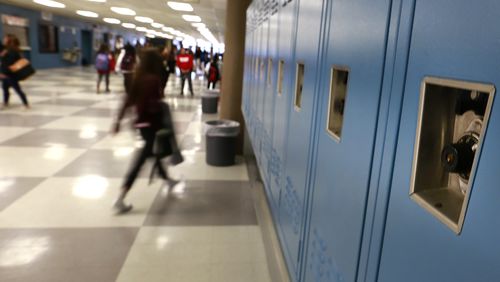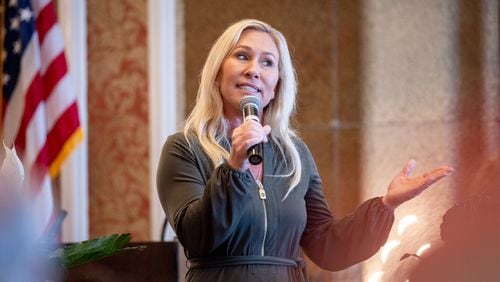Jim Arnold, former superintendent of Pelham City Schools, recently talked with some Georgia middle school students about what they liked about school and what they didn't. He wrote a long piece about those conversations, which I have condensed. You can read his full account here.
I agree with Arnold that students are seldom consulted about school reforms, and we should spend more time asking them what works. They have some worthwhile suggestions.
By Jim Arnold
I had the pleasure of judging several students a few weeks ago as part of a district-wide scholarship competition in written essays and face-to-face interviews. I asked to speak to four of them afterward about their feelings toward schools.
The students were not scientifically selected. All four attend public middle schools in central Georgia and were strong students. I was interested in what they liked and didn’t like about school and their thoughts on the Georgia Milestones and the Georgia Performance Standards. The GPS are Common Core standards renamed by the state.
Here's a sampling of their comments:
What they like about school
“The environment. The atmosphere is important because I like to be around happy people but I dislike how school is often taught because not all students learn the same way and everyone is not wired the same way. We don’t get asked about our opinions very often because kids will usually say what they think and not just what you want to hear.”
Three liked math the most; one chose physical education All are in music and believe music classes “expose them to other cultures” and “it’s fun.” All believe music helps them with other classes, primarily because “it’s like another language," “requires concentration and teaches responsibility” and that “practice pays off.” They want PE offered to every student as an everyday choice. PE is often rotated with art, music, drama or computer lab, and students don’t often get to participate for several weeks at a time.
What they don't like
They felt the school day was too long, primarily because the only break they get from classes is lunch. They thought the “no talking” rule in the halls was “kid stuff” and was a missed opportunity to “decompress for a few moments before beginning the next class.” As one said, “Socialization with my friends is important to me, and we don’t get any time to do that.”
They also thought hourlong classes were a bit too long as it was hard, even for good students, to concentrate for that length of time for six classes every day.
They all suggested a little down time at the end of the day to do homework, talk quietly or review what they had done that day instead of the “extra learning time” that generally adds new work or concepts rather than a review of old ones.
They expressed frustration with standards being posted each day for every class, saying, “We don’t have time to process new things before moving on,” “The standards prevent us from exploring what might be some really interesting stuff,” “Teachers seem fixated on the standards and sometimes cover the standards just be able to say they covered them rather than make sure we really learn them.”
Teachers
“My favorite teacher has a comfortable classroom and we don’t have to sit in rows every day and just listen. There are couches and we can move our chairs if we want. She makes us a part of the discussion and acts like she is interested in what we say and ask.”
“My favorite teacher knows our names and the class feels safe. I like her approach. She is not confrontational or intense and she makes it clear what she expects us to do.”
“I don’t like worksheets or packets teachers just hand out.”
“I like the teachers that seem as if they like me and know me and care about me.”
“We can tell the difference in some teachers when an administrator walks in the room to observe.”
Technology
“Our computers are old and slow and always seem to crash or need repair.”
“We have Smart Boards but sometimes they aren’t very smart and don’t always work well.”
“We can check out laptops and iPods from the library but sometimes they don’t work because the internet is pretty slow. "
“The internet always seems to go down just when I start doing something interesting.”
“Our teachers don’t usually let us use our own phones during class except for maybe the last five minutes of a class or at the end of the day.”
They agreed almost every student has a phone and those phones are "usually better than the stuff we have in school, but we don’t get to use them much. We hardly ever use them because some kids would just play games or text.”
Georgia Milestones
“We spent the entire month of March doing test review. Some teachers even commented their jobs depended on us doing well. That’s a lot of pressure on them and on us.”
“Some of the teachers told us we had to try really hard or we wouldn’t go to the next grade.”
“We had March Madness test reviews and that meant no new stuff, just reviews every day. It can get pretty boring.”
“I think the test and all the reviewing gets in the heads of students and teachers and stresses everybody out. It’s just one test. I don’t see why it should count so much when not every kid tests well or might just have a bad day and fail.”
"Kids talk about the tests a lot, but only to each other. We don’t think it’s fair because a lot of the stuff we learn is not on the test and a lot of things we’ve never seen before are on it.”
“The tests don’t seem to be about what we are really learning.”
“I’ve never taken the tests because my parents think they are not fair... my parents meet with the principal and they talk about my grades and my progress every year.”
“We know who passed and who didn’t. Kids know stuff adults think we don’t notice, but we do.”
If money were no object
“If money were no object, I would buy a new laptop for every student, new computer labs and a smartphone for every kid (because computers are for teachers but kids know how to use their phones to do just about anything.)”
Other purchases mentioned: "New PE equipment, a dedicated art room with plenty of space to display student work and a music room with a lot of different instruments for kids to play.”
After listening to their answers, I remain convinced that 1) we don’t listen enough or ask enough to discover what our students have to say, and 2) their honesty and observations are insightful, intelligent and need to be a part of any conversations about what does and does not work in education. I will leave you with one final quote from these delightful students; “It’s not the school that makes it a good place, it’s the teachers and students that go there.” Amen and amen.
About the Author







